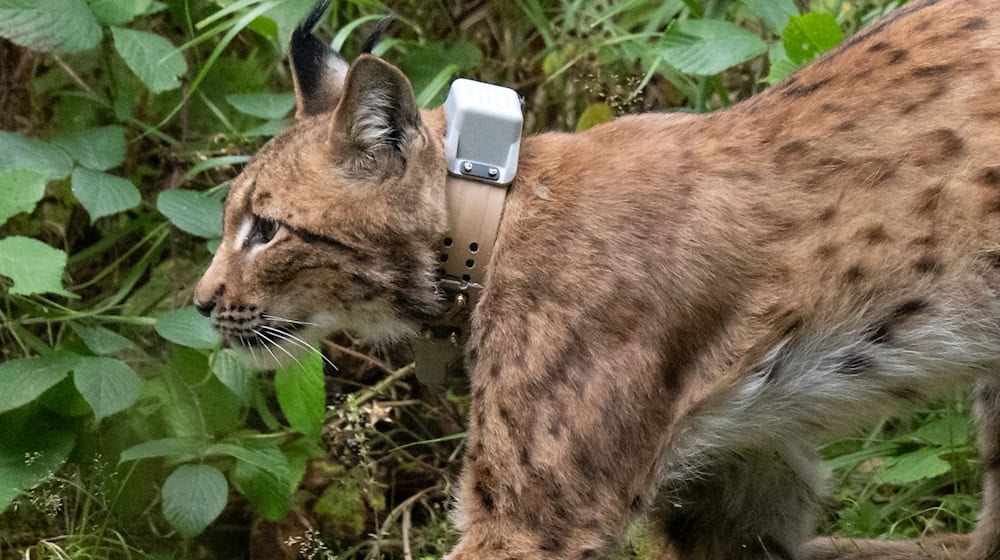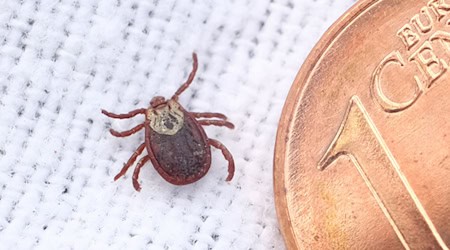The female lynx Alva, which was released into the wild in Saxony's Westerzgebirge mountains and infected with so-called feline leukemia, is not to be captured after all. After weighing up all the options and the risks for the lynx population currently being established and the project objectives, a decision was made not to do so, according to the State Office for the Environment, Agriculture and Geology (LfULG).
After evaluating the current data, Alva appears to be in good health. A contagious infection status is therefore currently considered rather unlikely.
Infection probably shortly before capture in Switzerland
Alva comes from the Swiss Jura and was released into the wild after a three-week quarantine in the Westerzgebirge after she had successfully passed all health tests.
It was only in a blood sample taken in Switzerland for research purposes on the last day of quarantine and only evaluated later that the infection was revealed. Initially, the plan was to recapture the female and examine her extensively.
Virus is rare in lynxes
The feline leukaemia virus, as the infection is scientifically known, is rare in lynxes and only infectious to cat species. According to the LfULG, it can only be transmitted through direct contact with an infected animal, for example through bites, mutual grooming or mating. The infection can take different courses and, in the worst case, lead to death.
Species conservation project "RELynx"
Saxony plans to reintroduce 20 lynxes by 2027 as part of the "RELynx" species conservation project. The project will use wild-caught animals, mainly from Switzerland, and breeding animals from zoos.
In addition to Alva, one other cat and three males (Kuder) had previously been released into the wild, but the male Anton died in a traffic accident. Alongside Thuringia and Baden-Württemberg, Saxony is the only federal state to reintroduce the endangered species.
Copyright 2024, dpa (www.dpa.de). All rights reserved










